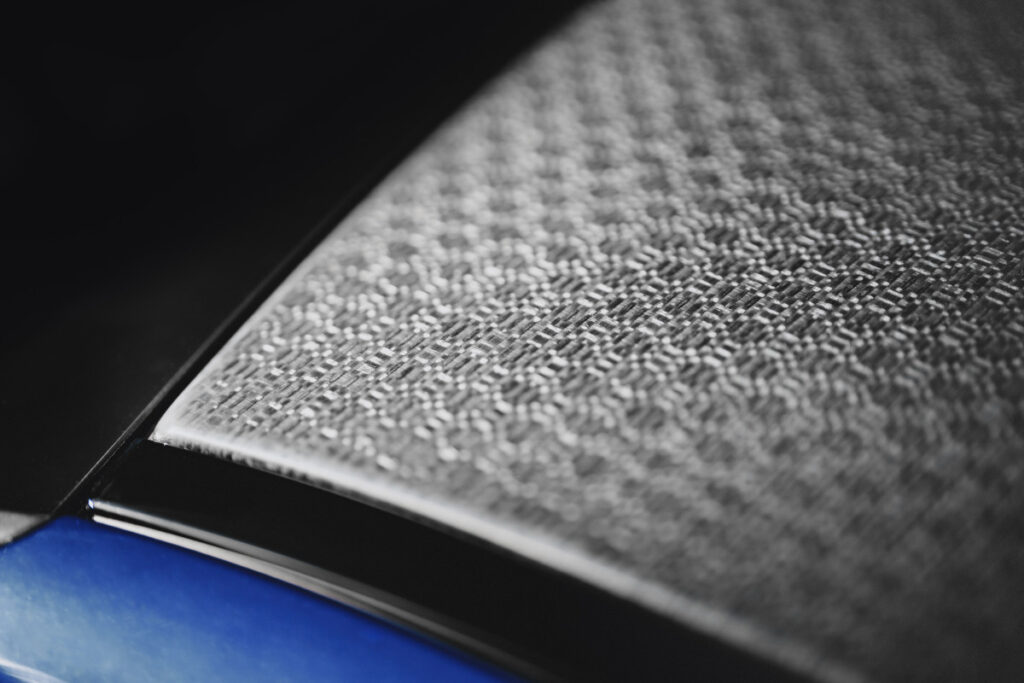A greener solution to weight reduction
It seems like everything we used to consider good or tasty is getting some sort of veggie or plant-based alternative. These days, it’s impossible to ignore the oat milk, plant-based cheeses, and Impossible meat on the menu at your local coffee shop or neighborhood bistro. Sometimes, those things taste just as good as the real animal-based thing.
In today’s eco-conscious world, equipping cars with lower-emission engines or electrifying powertrains is simply not enough for some automakers. Some manufacturers are going as far as decking their interiors with reclaimed wood trim, recycled plastics, as well as seats lined with “vegan leather” instead of the kind that comes off the back of a cow. However, the best of BMW’s Ultimate Driving Machines are getting a plant-based alternative to a space-age material.
BMW plant-based carbon fiber BMW
Carbon fiber, meet ‘Flax-Fiber’
In a statement released this week, BMW unveiled a new lightweight material that it claims is a more eco-friendly alternative to carbon fiber. Dubbed ‘natural fiber composites,’ this new material is made from fibers derived from flax, the same plant used to create textiles like linen and special types of paper, including the ones used in banknotes.
The Bavarians claim that this new composite material is stronger than the carbon fiber components it replaces and offers reduced CO2 emissions compared to producing carbon fiber parts. According to BMW, exchanging carbon fiber parts for those made of natural fiber composites in the roofs of next-generation BMW Group vehicles can lead to a CO2 reduction of around 40% in production.
After years of research and development and trial runs in motorsport settings, BMW says these natural composites are ready to be used in BMW’s road cars. In a statement, Franciscus van Meel, the CEO of the automaker’s M division, said that the high-performance specialists “are now looking forward to the use of these materials in future BMW M product ranges;” meaning that the the next-generation M3 and/or M4 may have a flax-roof when it reaches production.
BMW
The flax-based ‘natural fiber composites’ were made in collaboration with Swiss clean-tech firm Bcomp, a company the automaker has invested in through BMW i Ventures. BMW and Bcomp developed this eco-friendly space-age material through an experimental development phase over several years. BMW M Motorsport initially used reinforcement parts made with these natural fiber composites in the 2019 season of Formula E. Since then, the same parts have also been used to replace carbon fiber plastic (CFRP) parts in BMW’s M4 DTM (Deutsche Tourenwagen Masters) car and the M4 GT4 cars. BMW says that the M4 GT4 that will compete at the 24 Hours of Nürburgring will be equipped with these panels onboard.
“Natural fiber composites are a vital element of innovative lightweight solutions in motorsport,” he said. “They allow for a reduction in CO₂e emissions in the manufacturing process. This is innovation that perfectly fits BMW M’s identity: ‘Born on the racetrack. Made for the streets.’”
Final thoughts
By looking at it, you can convince me or the untrained eye that this “plant-based carbon fiber” is actually carbon fiber. On a more serious note, BMW and Bcomp are making significant strides toward sustainability with the introduction of this new sustainable lightweight material, especially at a time when there is a strong emphasis on creating more environmentally friendly vehicles. Reducing emissions involves more than just improving or removing engines; it requires comprehensive solutions that go beyond simply placing a green badge on cars with electric motors and batteries and calling it a day.

